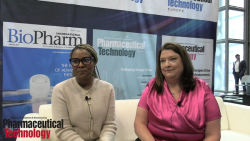
OR WAIT null SECS
- About Us
- Advertise
- Contact Us
- Editorial Info
- Editorial Contacts
- Editorial Advisory Board
- Do Not Sell My Personal Information
- Privacy Policy
- Terms and Conditions
© 2024 MJH Life Sciences™ and Pharmaceutical Technology. All rights reserved.
Narrowing the Geographic Divide in API Sourcing
Contract manufacturers deploy a business model using operations in the US and Western Europe with facilities in Asia.
The globalization of contract manufacturing organizations (CMOs) supplying active pharmaceutical ingredients (APIs) and intermediates is an ongoing phenomenon. The business models of these suppliers varies from companies seeking to be low-cost suppliers of early-stage intermediates and generic APIs to companies offering advanced intermediates, custom synthesis of APIs for innovator drug companies, and other value-added services such as formulation development and secondary manufacturing. These functional models also have geographic components. A CMO may have its operations exclusively in the United States or Western Europe, or be based entirely in emerging markets in Asia, Eastern Europe, and Latin America. Several CMOs are using a hybrid model that lies between these two approaches by basing certain functions in established markets such as process development, logistics, customer relations, and in certain cases, manufacturing, with other development and manufacturing operations abroad. These hybrid models offer the potential advantage of combining lower-cost production from facilities in emerging markets with operations in established markets.
IMAGES: JOHN LAMB, ULTRA.F/GETTY IMAGES ILLUSTRATION: M.MCEVOY
India-based CMOs expand
Piramal Pharma Solutions (Mumbai) (formerly NPIL Pharma), the contract development and manufacturing division of Piramal Healthcare (Mumbai), is a fast-growing company that is actively building its contract primary and secondary manufacturing capabilities. The company was one of the first India-based CMOs to acquire Western manufacturing assets. It acquired Rhodia's inhalation anesthetics business in 2004 and Avecia's custom-manufacturing business in December 2005. The Avecia acquisition provided Piramal with the following: early-phase API development capabilities in Huddersfield, United Kingdom; commercial-scale production capacity for advanced intermediates and APIs in Huddersfield and Billingham, UK; high-potency API manufacturing capacity in Grangemouth, Scotland; and small-scale API production capacity in Aurora, Ontario. Piramal also formed a new unit to focus on applying new technologies for process development and production of APIs using biocatalysis, chemocatalysis, its catalyst-based racemization technology, "SCRAM," and flow processing.
Patricia Van Arnum
In 2006, Piramal Healthcare acquired the Morpeth, Northumberland, UK, manufacturing facility of Pfizer. The site has API and formulation manufacturing production capacity and supply-chain capabilities for APIs, finished dosages, packaging, and distribution. With the Morpeth acquisition, Piramal secured a supply agreement with Pfizer through November 2011.
Piramal followed these acquisitions with organic growth through several recent expansions. In early 2008, the company commissioned its sixth high-potency-substance production suite at its Grangemouth facility. The new suite is optimized for GMP manufacture of antibody drug conjugates of batch sizes of 500–1000 g, and can produce as much as 50 kg annually. Also in 2008, Piramal Pharma Solutions set up capacity to supply antibody drug conjugates from batch sizes of 200–1000 g in Phase III and commercial scales.
On the formulation side, Piramal invested significantly over a three-year period to increase its early-phase (development) and late-phase (manufacturing) formulation services in the UK and India. Piramal invested in its early-phase pharmaceutical development and scale-up business unit at its facility in Ennore, Chennai, India in 2007.
Piramal Pharma Solutions made several investments to support its clinical trial service capabilities. In August 2008, Piramal launched clinical trials services from the Morpeth site. The services use a 13,000-ft2 clinical trials packaging and distribution facility for primary packaging of solid-dosage forms, including multidose blistering and walleting. Secondary packaging booths are set up for the labeling and assembly of various dosage forms. Further flexibility exists within the current footprint for future doubling of primary and secondary packaging capacity.
The company also opened a new 50,000-ft2 formulation development and clinical trial materials center in Ahmedabad, India, in December 2008. The facility will begin producing GMP supplies beginning in the second quarter of 2009.
To build its contract manufacturing, Dr. Reddy's Laboratories (Hyderabad, India), one of India's largest pharmaceutical companies, completed two key acquisitions in 2008: Dow Chemical's (Midland, MI) Dowpharma small-molecules business associated with its Mirfield and Cambridge, England, sites, as well as BASF's (Ludwigshafen, Germany) manufacturing facility in Shreveport, Louisiana, and related contract-manufacturing business for finished pharmaceuticals. Dr. Reddy's started building its custom manufacturing business in the West in 2005 with the acquisition of a former Roche API manufacturing facility in Cuernavaca, Mexico.
Dishman Group (Ahmedabad, India), which acquired several Western firms over the past several years, is expanding. Dishman bought the Swiss-based CMO Carbogen Amcis and I03S, a company specializing in ozone chemistry, in 2006, and the UK-based contract-research company Synprotec in 2005. In 2007, Dishman acquired Solvay Pharmaceuticals' (Brussels) fine-chemicals and vitamin businesses, which included facilities in The Netherlands, and the intellectual property rights for fine chemicals, vitamin D, and vitamin D analogues.
Dishman announced capital investments of more than $33 million: $20 million in the current financial year and $13 million planned for fiscal year 2009, which begins in April. Investments include the addition of a high-potency facility near Dishman's headquarters in Bavla, India, and a new plant in Shanghai. The plant in Bavla will be managed and operated by the Dishman subsidiary Carbogen Amcis, and is scheduled to be operational in mid-2009. The facility in Shanghai will include a production plant, a warehouse, dedicated on-site utilities, and administrative and quality-control offices. Construction is underway and is expected to be fully staffed and operational by the second quarter of 2009.
Drug, Chemical and Associated Technologies Association (DCAT): upcoming programs on pharma ingredients
CiVentiChem (Carey, NC), which was founded by scientists from Duke University as Universal Organics in the mid-1990s, provides contract R&D services to pharmaceutical and biotechnology companies. It formed an Indian subsidiary, Indus BioSciences, approximately six years ago in Hyderabad to provide research and development (R&D) services for those customers interested in having R&D done in India. CiVentiChem recently expanded its capabilities in Cary, North Carolina, with the launch of a GMP analytical laboratory to provide analytical services, and is building a pilot plant with 20,000-L capacity in Hyderabad to manufacture large-volume intermediates and APIs.
Jubilant Organosys (Noida, Uttar Pradesh, India), made two key acquisitions to build its contract secondary manufacturing activities: Hollister-Stier in 2007, which provided the company with US operations, and Draxis in 2008, which provided Canadian manufacturing facilities.
Building bridges to China
Wuxi AppTec (Shanghai), a contract research and manufacturing organization, expanded into the US in 2008 with the acquisition of AppTec Laboratory Services, a provider of testing, contract research and development, and biologics manufacturing services. In China, the company recently quadrupled the chemical manufacturing capacity at its Jinshan site with a new 350,000-ft2 commercial manufacturing plant. The plant features 18 reactors with capacities ranging from 8000 to 20,000 L. It also has cryogenic capability at a 10,000-L scale. Annual capacity of the plant is projected at 50–100 metric tons. Other plant features include two isolated API finishing areas, each classified at 100,000; high-temperature capability; GMP kilo laboratories (classified at 100,000 for handling production of APIs); and high-pressure reactions.
Taking advantage of its sourcing capabilities and knowledge base, Wuxi AppTec recently introduced a new global procurement service (GPS), which will assist customers in navigating purchasing low-cost commercial reagents from qualified vendors in China. The GPS services also include quality-control testing, certificates of analysis, repacking, relabeling, and export services.
Asymchem Laboratories, with headquarters in Morrisville, North Carolina, and R&D and production facilities in China, is expanding both in size and in services. Asymchem is converting its existing non-CGMP pilot plant in Tianjin, China into a CGMP high-potency kilo laboratory/pilot plant, which will open in the second quarter of 2009. In June 2008, the company opened a new R&D and analytical research center (Tianjin Life Science Center) to complement its existing CGMP pilot plant there. The new R&D laboratory employs approximately 300 chemists and provides services for medicinal chemistry, process safety, engineering evaluation, and process development. The 100,000-m2 site in Tianjin focuses on R&D for new technology of drug synthesis, process development and scale-up, CGMP API development and production support, final-dosage development and manufacturing, analytical methods development, solid-state studies, toxicity testing and formulation R&D. The second stage of construction of the Tianjin site is ongoing and includes buildings to house biological testing and a CGMP formulation production plant.
To meet increasing commercial requirements of customers, Asymchem is building a new site in northeastern China (Dunhua). The Dunhua site, which is scheduled to open in the third quarter of 2009, will have CGMP facilities for bulk synthesis of late-stage intermediates and APIs plus large-scale non-GMP facilities for producing key starting materials.
At this year's InformEX, the annual exhibition of custom and batch manufacturers that was held in San Francisco in late January, a sampling of exhibitors showed other companies emphasizing a US–China hybrid model. Some examples include AmbioPharma (North Augusta, SC), APAC Pharmaceutical (Columbia, MD), AstaTech (Bristol, PA), Chemlex Pharmaceuticals (Pleasanton, CA), ChemPacific (Baltimore), Laviana (San Ramon, CA), and PHT International (Charlotte, NC).
Implications
The importance of these global relationships reflects the changing competitive landscape. A recent member survey by the Synthetic Organic Chemical Manufacturers Association, the US-based trade association representing batch and custom manufacturers, shows increased penetration by CMOs from emerging markets. The mean market share held by suppliers from the emerging markets of India, China, Eastern Europe, and Latin America was 26.5% in 2008, and this level is projected to increase to a mean of 30.8% in 2009, according to the survey. If the survey is an indication, these competitive dynamics will continue.
Patricia Van Arnum is a senior editor at Pharmaceutical Technology, 485 Route One South, Bldg F, First Floor, Iselin, NJ 08830 tel. 732.346.3072, pvanarnum@advanstar.com


